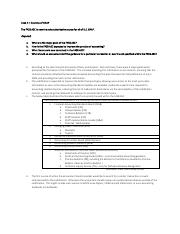
Look for evidence of their track record, reliability, and the quality of their work. Consider their expertise and knowledge in bookkeeping software, as well as their ability to provide customized solutions that align with your business processes. Small businesses can achieve cost savings, access expertise, save time, and enjoy scalability when they outsource their bookkeeping tasks. Additionally, they adhere to strict confidentiality agreements and comply with data protection laws to ensure data security and privacy.
Should you outsource your bookkeeping?
Throughout the process, the accounting business will regularly communicate with you to update you on their progress and request further input if necessary. Most also provide ongoing support and adjust your services based on your changing needs. A bookkeeping outsourcing services partner in a different country may have a time lag in responding to queries, affecting the speed of decision-making.

By leveraging outsourced bookkeeping services, businesses can scale up their operations confidently, knowing that their financial management is in capable hands. Having an outsourced bookkeeping service provider is known difference between accounting concept and convention with table to reduce many common errors made by business owners. Modern bookkeeping is often done through a cloud-based automated system that allows you and other experts to view your records at any time, so there are many eyes on your books.
Why hire a remote bookkeeper?
Businesses no longer need to allocate separate resources for bookkeeping and tax-related tasks. Instead, they can leverage a single provider well-versed in both areas, ensuring a more efficient and streamlined approach. One of the primary reasons businesses outsource their bookkeeping tasks is the substantial cost savings they can achieve. By outsourcing, businesses can leverage the expertise of specialized bookkeepers at a fraction of the cost of hiring a full-time in-house team. The enumerated benefits in this piece highlight how outsourced bookkeeping company can financial well-being. Ultimately, selecting outsourced bookkeeping services provider is a partnership that extends beyond number-crunching.
This means access to invaluable financial data that can help you stay on top of your cash flow and guide your decision-making. Then you can turn to accounting firms and tax professionals for just tax preparation, reducing your overall costs. By outsourcing bookkeeping tasks, companies can focus on their core competencies, increasing productivity and driving growth. Outsourcing allows businesses to access specialized expertise and technologies, such as an accountant, that may not be available in-house. This opens up new possibilities for streamlining financial processes, improving accuracy and timeliness, and gaining valuable insights from financial data. Businesses must work with bookkeeping outsourcing services that understand and adhere to GDPR regulations, ensuring that personal data is handled and stored securely.
- This strategic move empowers companies to thrive in a competitive landscape by redirecting resources toward core functions.
- While researching and evaluating online bookkeeping service providers, keep in mind the importance of strong communication and collaboration.
- These experts, with their high level of skill and established systems, make fewer mistakes than training a new employee.
You can manage all your payroll and HR benefits from the Gusto platform, and if you ever have questions, you can ask one of their payroll specialists. Reduce costs, manage taxes, administer benefits, and stay globally compliant when you consolidate payroll with Remote. At some point, you may find it more beneficial to move some or all of your accounting processes in-house.
Step 2: Decide on the Type of Provider – Freelancer or Firm
Outsourced bookkeeping services involve hiring external experts to manage financial records, transactions, and reporting for businesses, improving accuracy and efficiency. The quality of outsourced bookkeeping services can vary depending on the competence of the chosen outsourcing partner. Businesses need to thoroughly vet potential providers to ensure high-quality services. It eliminates the need for an in-house bookkeeping team, curbing expenses related to salaries, benefits, and ongoing training. This approach offers a cost-effective solution without compromising on the quality of financial management. Outsourced bookkeeping works by delegating your business’s financial management tasks to external professionals or firms specializing in bookkeeping and accounting services.
Financial planning and analysis
Set up restricted user accounts, and only provide access to the systems and data that are needed for the provider to perform their tasks. First, analyze your accounting operations and determine difference between interest and dividend with comparison chart which functions you’d like to outsource. Consider factors such as time spent on certain tasks, the level of expertise required, and the costs of performing these tasks in-house.
The first question you have to ask yourself is whether outsourcing your accounting needs realistically works for your business. Hiring a large accounting firm to cover the full service of all accounts can take a considerable amount from your small company’s net profits. Plus, full-time bookkeepers are experts in the field that can generate more thorough reports and documents that take some pressure off your back once tax season hits. Bookkeeping can be a headache for big and small business owners —so much so that 46% of business owners said it was their what is payroll expense least favorite task. The process of recording all financial transactions is often challenging and stressful, as there are many other important day-to-day tasks for startup business owners to handle. Having professionals do your books will save you time and give you peace of mind.
